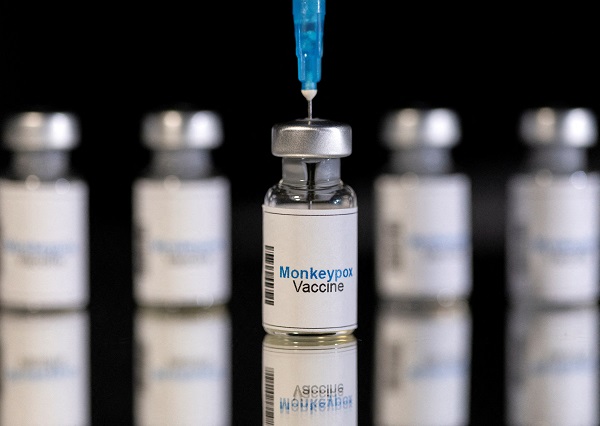
The Africa Centres for Disease Control and Prevention (Africa CDC) is currently in discussions with Bavarian Nordic, the sole global producer of the Mpox vaccine, to facilitate the transfer of technology that would enable African manufacturers to produce the vaccine on the continent.
Director-general of Africa CDC, Dr. Jean Kaseya made this announcement during the weekly Mpox media briefing on Tuesday, highlighting the importance of this potential collaboration.
Kaseya expressed gratitude to Bavarian Nordic for agreeing to the technology transfer, which would empower Africa to produce its own vaccines. He noted that Africa CDC aims to have 10 million doses available by the end of 2025, adding that Bavarian Nordic has assured the organisation that this goal is achievable.
However, Kaseya acknowledged that while this represents a long-term solution to the Mpox outbreak affecting 12 African countries, more immediate measures are needed. He emphasised the need for donations from wealthier countries to address the crisis in the short term, describing this as an “emergency humanitarian era.”
He also commended the European Union (EU) for procuring 215,000 vaccine doses for the continent.
“In the past week alone, Africa has seen an increase of 1,405 Mpox cases, bringing the official total to 18,910,” Kaseya reported, noting that surveillance remains suboptimal in some countries.
“The biggest increase was in the Democratic Republic of Congo (DRC), the epicentre of the outbreak, which now has 17,794 cases—an increase of 1,030. However, armed conflict in eastern DRC is hampering efforts to curb the outbreak,” he said.
Kaseya praised Angola’s president for his efforts to broker peace between the DRC and Rwanda, which has supported the M23 rebels in the DRC.
“Other countries, including Burundi, The Central African Republic and Nigeria, have also seen an uptick in cases. Burundi’s cases jumped from 265 to 572, while The Central African Republic’s cases increased from 206 to 263 and Nigeria’s from 24 to 39. No new cases were recorded in Cameroon, Congo, Kenya, Rwanda, Uganda, South Africa, Côte d’Ivoire or Liberia. The total number of recorded deaths stands at 541,” he explained.
For the first time, Kaseya noted, Africa CDC, the World Health Organisation (WHO) and UNICEF have united to form a single African Incident Management Team to address the outbreak, which has been declared a Public Health Emergency of International Concern (PHEIC).
Director-general of the Democratic Republic of the Congo Institute for National Research and Biomedical (INRB), Prof. Jean-Jacques Muyembe emphasised the need for better communication to prevent the spread of Mpox. He called for children to be warned against touching dead animals or consuming bush meat.
Muyembe also reported on a recent trial of the antiviral medicine tecovirimat for treating Mpox. “While tecovirimat did not reduce the duration of Mpox lesions in children and adults with Clade I Mpox in the DRC, the trial showed a 1.7 per cent mortality rate—significantly lower than the 3.6 percent mortality rate typically observed in the DRC. This mortality rate applied to all trial subjects, regardless of whether they received tecovirimat or a placebo, suggesting that hospitalisation and high-quality supportive care improved outcomes,” he explained.
Science Nigeria reports that Mpox, formerly known as monkeypox, is a viral disease caused by the monkeypox virus. It is similar to smallpox but generally less severe. Mpox is characterised by symptoms such as fever, rash, and swollen lymph nodes. The disease can spread from animals to humans and between humans through close contact, respiratory droplets and contaminated objects.
The WHO and other health organisations renamed monkeypox to “Mpox” in 2022 to reduce the stigma and discrimination associated with the original name.
Meanwhile, South African President Cyril Ramaphosa, the African Union (AU) Champion on Pandemic Prevention, Preparedness and Response (PPPR), urged member states to allocate more domestic resources to combat Mpox. Ramaphosa also called on the international community to mobilise stockpiles of vaccines and other medical countermeasures for deployment in Africa via Africa CDC.
“This is an opportunity to call on the international community to finalise a fair and equitable pandemic agreement—a duty that must be pursued with urgency and a spirit of equity,” he added.

